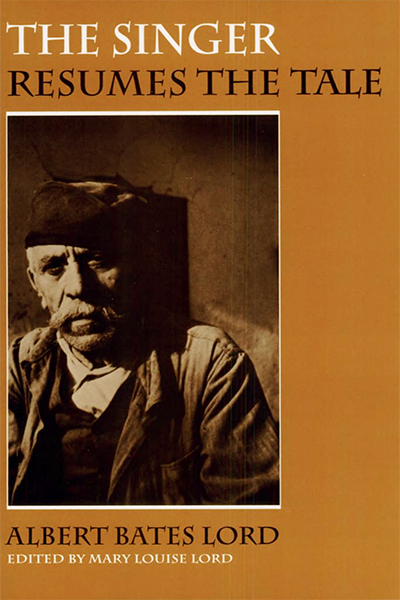The Singer Resumes the Tale
Edited by Mary Louise Lord after the author’s death, The Singer Resumes the Tale focuses on the performance of stories and poems within settings that range from ancient Greek palaces to Latvian villages. Lord expounds and develops his approach to oral literature in this book, responds systematically for the first time to criticisms of oral theory, and extends his methods…
Edited by Mary Louise Lord after the author’s death, The Singer Resumes the Tale focuses on the performance of stories and poems within settings that range from ancient Greek palaces to Latvian villages. Lord expounds and develops his approach to oral literature in this book, responds systematically for the first time to criticisms of oral theory, and extends his methods to the analysis of lyric poems. He also considers the implications of the transitional text—a work made up of both oral and literary components.
Elements of the oral tradition—the practice of storytelling in prose or verse, the art of composing and transmitting songs, the content of these texts, the kinds of songs composed, and the poetics of oral literature—are discussed in the light of several traditions, beginning in the ancient world, through the Middle Ages, to the present. Throughout, the central figure is always the singer. Homer, the Beowulf poet, women who perform lyric songs, tellers of folktales, singers of such ballads as “Barbara Allen,” bards of the Balkans: all play prominent roles in Lord’s book, as they have played central roles in the creation of this fundamental literature.
Originally published in 1995 by Cornell University Press.
Available for purchase in print via Cornell University Press.
Use the following persistent identifier: http://nrs.harvard.edu/urn-3:hul.ebook:CHS_LordA.The_Singer_Resumes_the_Tale.1995.
Copyright, Cornell University Press. Published here with permission.

